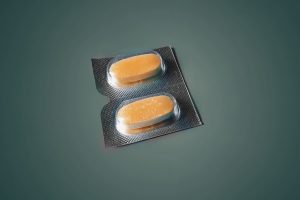Antibiotics are medicines that combat bacterial infections like strep throat, urinary tract infections, and much more. Despite their ability to ward off potentially destructive infections, many users undergo uncomfortable side effects while taking these medications. These may include indigestion, bloating, and nausea. Although it is less common, some antibiotics may also make you feel weak and tired. This article answers the question, ‘why do antibiotics make you tired?’ and other things you need to do.
It’s not been long since antibiotics have been in use. Penicillin was the first natural antibiotic that Sir Alexander Fleming discovered in 1928. At the time of this accidental discovery, diseases like bacterial meningitis, bacterial endocarditis, and pneumococcal pneumonia were some of the fatal diseases. However, as soon as penicillin was discovered, you could treat these diseases quickly. Since its first discovery, this drug group has continued saving many lives.
The world of antibiotics is diverse. Several kinds of antibiotics are there; some are even discovered today. They can be administered orally in tablets, capsules, and liquid medicines. Some others can be injected into the body. The way antibiotics work is also different according to their class. While some can work on a broad spectrum of diseases, others are effective only against a few. In addition, a type of antibiotic attacks aerobic bacteria that thrive on oxygen, while others may work on anaerobic ones that require no oxygen. The diversity of antibiotics and their uses make them a miracle drug in the modern-day scenario.
Why do antibiotics make you tired?
When sick, it’s normal to feel tired more than usual. This is because our bodies must work in overdrive to get rid of bacteria and germs and return them to normal. But has it ever happened that you have felt completely drained regardless of prolonged hours of sleep? While most classes of antibiotics do not lead to drowsiness as a side effect, there are a few that may make you feel fatigued.
To understand why do antibiotics make you tired, it’s imperative to know how antibiotics operate. A medicine’s mechanism of action can also vary according to its type. For instance, some may act on the bacteria by mediating with the cell wall structure, while others tend to prevent the bacteria from further growth.
When a person taking antibiotics feels fatigued, it indicates that the medicine is working on the infection. As it attacks the parasite, these medicines change the balance of microbes in the human body. It’s important to note here that our body is full of good bacteria that play a vital role in various essential functions.
And when antibiotics are administered, they can also bring down the beneficial bacteria. This undesired alteration in the body’s microbiome can impact its ability to absorb nutrients and cause dehydration. These two factors can contribute to making you feel more tired than usual.
 Why antibiotics make you tired
Why antibiotics make you tired
Which antibiotics make you tired?
While it’s true that antibiotics can make you tired, this rule doesn’t apply to all of them. However, some common antibiotics can be attributed to this. Let’s delve deeper into these medications:
Amoxicillin: It is a highly effective antibiotic used for treating a varied range of health issues, such as pneumonia, bronchitis, yeast infections (candidiasis), and UTIs. But if you feel exhausted, you must consult an experienced online doctor without any delay. Although it is normal to feel a certain degree of fatigue after taking this medication, be mindful of fainting or combating to stay alert and awake. Sometimes, Sulfamethoxazole is administered in place of Amoxicillin, and it works equally well sans the side effects.
Ciprofloxacin is among the numerous fluoroquinolones and one of the most effective antibiotics that may cause fatigue. You can use it for treating infections of bone, skin, prostate, and similar others. However, the side effects of the antibiotics can be drowsiness, dizziness, and difficulty in remaining alert. When a patient is allergic to penicillin and Ciprofloxacin doesn’t serve as a good choice, doctors often prescribe tetracycline antibiotics like doxycycline.
Azithromycin: This commonly prescribed antibiotic causes extreme fatigue and many side effects. Azithromycin is used to treat respiratory tract bacterial infections and disorders of the skin, eyes, and ears. It can also be effective against a few sexually transmitted diseases. Doctors often recommend clarithromycin as a potential alternative to Azithromycin.
It’s critical to remember that how a patient responds to certain antibiotics can vary among individuals. Therefore, you should consult your doctor about antibiotic resistance and side effects to know if a particular medication is proper for you.
Other side effects of antibiotics
Other than making you tired, another common side effect of antibiotics is their influence on the digestive system. These may include nausea and vomiting, diarrhea, bloating, abdominal pain, and loss of appetite. One out of ten people gets afflicted by these issues, typically mild. As a result, they tend to pass as the course of medication is finished. However, you should seek medical care without delay if these effects are severe or linger long.
Allergic reactions are also familiar to antibiotics. About one in fifteen people get allergic symptoms from antibiotics, particularly cephalosporins and penicillin. Mostly, these reactions take the form of itchy skin rashes, wheezing, coughing, and a feeling of tightness in the throat. If these reactions are unbearable, they can be easily treated by taking antihistamines.
In some rare instances, the group of antibiotics called fluoroquinolones can lead to long-lasting and even permanent aches and pain in the major joints and muscles of the body. It may also cause a tingling sensation and numbness in the elbow, shoulder, or tendon. When this happens, you should stop taking these medications and contact the healthcare provider online immediately.
Do antibiotics make you sleepy?
While antibiotics are straightforward medications, their side effects cause problems, especially for older people. People are already aware of the bothersome impact of antibiotics on the digestive system. But a lesser-known result includes making an individual feel sleepy. While the precise reason behind this is not entirely comprehended, experts suggest that it has something to do with the balance of microbes in the stomach.
Consult your healthcare provider if your antibiotics make you sleepy and intervene with your daily routine. Make sure you keep up your healthy habits and get a whole night’s rest of eight hours. If you are taking any OTC that can make you sleepy or lists drowsiness as a side effect, you should stop taking that along with the antibiotic.
How to combat fatigue from antibiotics
The side effects of antibiotics can be uncomfortable, but fortunately, they don’t last long. Eating the right foods can aid in ruling out bothersome side effects, including fatigue. In addition, an individual’s gut comprises trillions of bacteria and other good microorganisms. In medical terms, this organism community is called the microbiome.
The stomach’s microbiome keeps up the digestive system’s function and assists the immune system in combating bacterial, viral, and candidiasis. When this balance is upset by antibiotics, you are likely to go through some side effects, including fatigue. Consuming the right food can help you rule out fatigue and encourage healing.
Probiotics
The live organisms which are commonly known as healthy bacteria are probiotics. They help in minimizing diarrhea caused by antibiotics. However, since antibiotics can also kill good bacteria, taking these two items 3 to 4 hours apart is suggested.
Prebiotics
Prebiotics refer to the food for the probiotics, and you should consume it as feeding the good bacteria after taking antibiotics can aid in bringing balance to your gut health. Some foods that contain a low percentage of prebiotics include chicory roots, garlic, onion, and bananas.
Vitamin K
Some bacteria produce Vitamin K, which is responsible for blood clotting. So it would help if you took parsley, collards, spinach, mustard greens, and Brussels sprouts to help minimize the impact of antibiotics on your vitamin K levels.
Additional precautions
While this nourishment will boost your immune system, which can ward off fatigue and sleepiness, you should contact your doctor if the symptoms persist. Doctors can help you switch to alternative medications that might not have the side effect.
Also, many conditions treated with antibiotics can make you feel tired. So your healthcare provider might ask you additional questions to detect if the fatigue is caused by the disease or as a side effect of the medication. But you must take extra precautions to ensure safety. For instance, do not drive or participate in strenuous activities when you are fatigued. In addition, refrain from alcohol and other substances that can surge your tiredness.
Frequently Asked Questions
Even though exercising is safe when you are under the course of antibiotics, it’s better to avoid it. While working out is a great way to improve your immune system, doctors recommend that you should give your body a break when it is recovering from an infection.
Moreover, you will recover faster if you take rest while taking antibiotics. This is because our bodies are made to combat different fronts. You are not only fighting the infection you are troubled with but also going through the effects of the medication. If you exercise, you will have to work your muscles more, which also needs repair and restoration.
Rather than working on a regular frequency, it’s recommended that you take that spare time to rest, keep yourself hydrated, and eat a healthy diet. Some doctors also recommend regular probiotics to ward off any gastrointestinal issues from the medication.
It’s recommended not to lie down immediately after taking antibiotics since it can slow the pace of the movement of the medicine through the esophagus to the stomach. As a result, you can feel some irritation in the esophageal region.
Those antibiotics used for treating irritation and inflammation of the esophagus and ulcers can be particularly harmful. These include Clindamycin which is generally used for treating candidiasis and remains in the esophagus for a long time when you lay down. It releases certain chemicals that can destroy the inner lining of the esophagus.
Lying down right after taking a medicine or taking it when you lay down can inflate the risk of irritation in the gastrointestinal tract by increasing the time taken for the treatment to pass. In addition, some people drink little to no water while swallowing pills, which is a risk factor for inflammation. It would help if you tried to remain upright for about 10 to 20 minutes and drink the medicine with a glassful of water.
When taking any oral antibiotic, you should strictly follow the prescription dosage. Even though you must take some medicines before bedtime, it’s a good idea to wait for half an hour before hitting the bed. This is because it becomes difficult for the drug to pass through your esophagus when you lie down. It will keep on releasing chemicals that can damage the esophageal lining.
Final words
Antibiotics are a class of medicine that works as a double-edged sword. While it continues to impact human life and release us from the shackles of bacterial and fungal infections, they also come with hordes of side effects. In the worst scenario, destroying healthy bacteria in the body can throw our immune system entirely off track, making it difficult to recover. Therefore, you must contact the doctor immediately if you face any unmanageable effects from taking your antibiotic medication.





